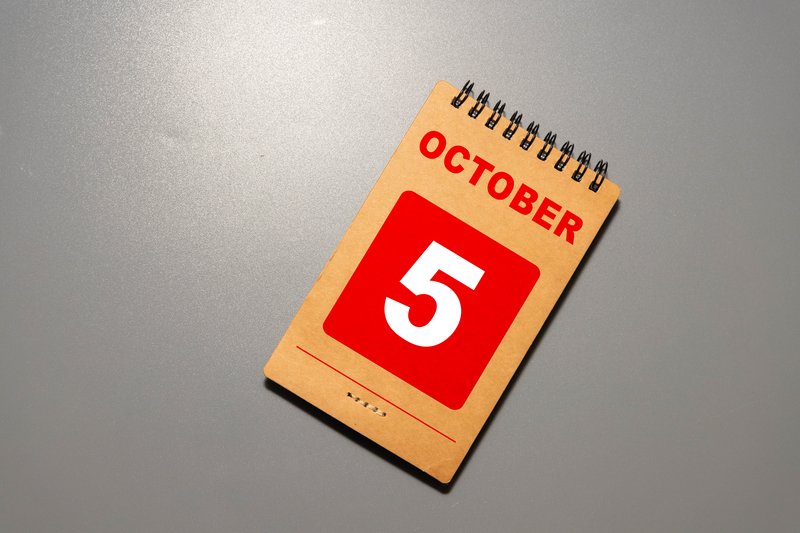If you’ve recently become self-employed and earned over £1,000 in the previous tax year, you must register for Self Assessment. The registration deadline is October 5th.
In this guide, we explain:
- Who needs to register for Self Assessment?
- The key deadlines small business owners should be aware of.
- What happens if you miss the registration deadline?
What is Self Assessment?
Self Assessment is the name given to the system used by HMRC to collect income tax and national insurance that hasn’t already been deducted via PAYE (Pay-As-You-Earn).
If you’re self employed, you use this system to pay any tax and national insurance you owe for the previous tax year.
Do all self employed people need to register?
Broadly speaking, if you received income in the previous tax year which has not been taxed, you probably need to register.
HMRC says that you need to register if, during the previous tax year:
- You were a sole trader and earned more than £1,000 (before taking off any expenses).
- You were a member of a business partnership.
Find out more about the steps you need to take to register in our guide – how to register for Self Assessment if you’re self employed.
The steps are slightly different depending on whether you’ve registered as self-employed and/or filed a tax return in the past.
If you’re ready to register right away, visit HMRC here.
What about company directors – is it mandatory to register?
In the past, HMRC stated that all company directors must register for SA. However, this guidance no longer applies.
If all of your income as a director has been taxed via PAYE (your salary), you don’t need to fill in a tax return.
However, if you have additional income – and your total income is above the personal allowance threshold (£12,570), you might have to file a tax return.
This includes if you receive dividends above the £500 tax-free allowance, or any other sources of income.
Free Tide Business Bank Account - £50 Cashback!

Open a free business current account to qualify + enjoy 12 months free transactions. Read our Tide review.
If HMRC asks you to file a tax return, but you have no additional taxable income to report, you can ask for your “notice to file” to be withdrawn.
Who else needs to file a tax return?
There are other reasons why you might need to register besides self-employment.
For example, if you receive other sources of income, such as:
- Rental income
- Investment returns
- Earnings from a ‘side hustle.
You might need to register if you made money from a ‘side hustle’ during the previous tax year.
You can learn more about who must register on this HMRC page.
What are the Self Assessment registration deadlines?
If you started your business during the previous tax year (April 6th to April 5th), you must register with HMRC by October 5th.
So, if you started a business as a sole trader in March 2024, you have until October 5th 2024 to register.
However, if you started working for yourself on April 7th, 2024, you must register by October 5th, 2025.
The deadline for filing your tax return is 31st January each year. This is also the date you must pay any tax you owe.
What happens if I don’t register by the October 5th deadline?
If you fail to register by this date, HMRC may issue you with a ‘failure to notify’ penalty, which is a percentage of any tax you owe.
However, this isn’t always the case – particularly if you were unaware of the deadline.
Charlie Bailey, co-founder of accountancy firm GoForma explains more below – exclusively for ByteStart visitors:
If you missed the 5th October deadline for telling the HMRC that you need to file a Self Assessment tax return then you are unlikely to be penalised so long as you can demonstrate that you:
a) missed the deadline non-deliberately
b) did not attempt to hide the fact that you missed the deadline
c) have informed the HMRC that you missed the deadline without any prompting from their end.
The best way to demonstrate these three things is to call the HMRC on 0300 200 3300 and explain to them that you have never filed a Self Assessment tax return, that you were unaware of the 5th October deadline and that you want to file the tax return online.
The earlier you make contact with the HMRC, the stronger your case will be to argue that you made no attempt to hide the fact that you missed the deadline.
Ask the person on the other end of the line if they can send you an email confirming what was said during the call. This can be used to appeal any penalty that the HMRC may issue you.
It’s not in the HMRC’s interest to issue penalties, they just want to collect owed tax.
So if you inform the HMRC about your situation and submit your Self Assessment before the deadline on 31st January 2025 then your chances of being fined are minimal.










